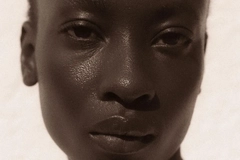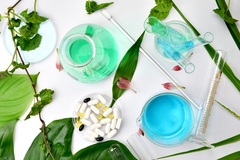Eurofins increases cosmetic testing in China to meet tightening regulations

Laboratory testing company Eurofins has released its 2024 annual report and full-year results, revealing multiple expansion strategies in China. In Shanghai, the company has increased its cosmetic testing capabilities, strengthened its laboratory infrastructure, and expanded its consumer research operations amid China’s tightening cosmetic regulatory landscape.
In January, the Shanghai Municipal Drug Administration announced the implementation of a risk grading system (A to D) for cosmetics manufacturers. The system will categorize companies based on compliance, safety records, and credit risk.
The National Medical Products Administration (NMPA) also introduced updated measures last month to support the innovation of cosmetic raw materials. The NMPA is streamlining approvals for low-risk ingredients and prioritizing traditional Chinese medicine (TCM) and biotech-driven formulations.

Eurofins’ expansions and China’s regulatory updates reflect the need for brands to prioritize scientific validation, transparency, and compliance when competing in the Chinese beauty market.
China’s stricter regulations
The Shanghai Municipal Drug Administration’s new risk grading system makes lower-rated manufacturers (graded C and D) face more frequent inspections, while higher-rated companies will benefit from reduced regulatory scrutiny. The system will be updated annually, and brands will be required to submit self-assessments.
With China now enforcing stricter grading criteria, brands that fail to meet the safety standards could face reputational and regulatory risks. These changes cause international beauty brands to plan for compliance in the region.
Under the tightening regulations, cosmetic brands must prove product safety, ingredient transparency, and efficacy claims before entering the market.
Eurofins’ 2024 annual report reveals that the company opened its Cosmetic Testing Service laboratory in Shanghai to support domestic and international brands to meet the new requirements.
.jpg) With China now enforcing stricter grading criteria, brands that fail to meet the safety standards could face reputational and regulatory risks. Eurofins’ report details that one of its core objectives is the “ownership of strategic sites in high-growth markets and regions with space to expand.”
With China now enforcing stricter grading criteria, brands that fail to meet the safety standards could face reputational and regulatory risks. Eurofins’ report details that one of its core objectives is the “ownership of strategic sites in high-growth markets and regions with space to expand.”
China’s stricter regulations on product safety claims are especially stringent in anti-aging, skin-brightening, and microbiome-friendly formulations, which drives demand for advanced testing facilities.
Consumer and sensory testing
Eurofins’ report highlights a growing demand for consumer and sensory research in China as beauty brands work to fine-tune their products to better align with local preferences.
To support this, the company established Eurofins Sensory Consumer and Product Research, a lab dedicated to studying product texture, fragrance, and overall sensory experience.
“Demand from customers for consumer product testing has gradually rebounded in numerous countries, particularly in China,” says Eurofins.
Pushes for raw materials
The NMPA announced last month that it is implementing measures to support raw ingredient innovation, and establishing new evaluation standards for functional ingredients. The initiative emphasizes using TCM-based ingredients and biotech-driven formulations, encouraging companies to develop science-backed cosmetic ingredients.
This holds the potential for better opportunities for beauty brands to introduce novel formulations. However, it also positions them with a more substantial need for scientific validation.
As ingredient safety regulations tighten globally, China’s move toward raw material standardization and alternative testing methods (such as non-animal testing) underscores the broader industry shift toward clean, transparent formulations.












